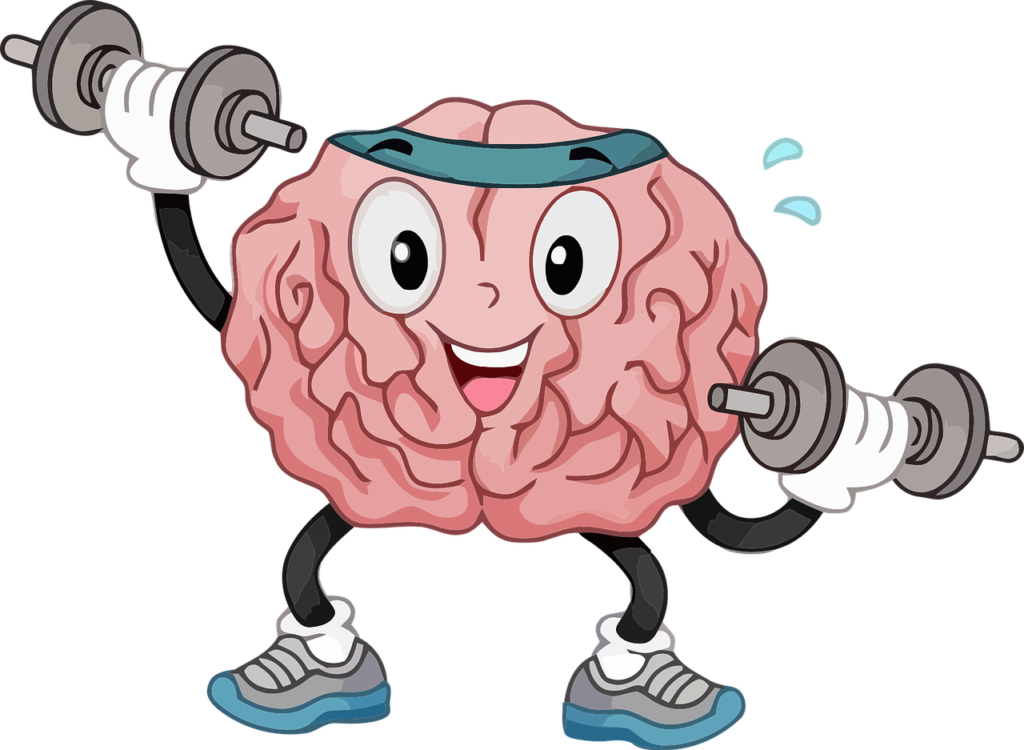I’m getting old. Has this happened to you? You go up a flight of stairs or carry heavy groceries and you’re a bit winded. Clearly, I’m not exercising enough. By exercising our bodies, we have a better chance of staying in shape and not getting winded doing basic although sometimes taxing chores. That’s not all we need to exercise to stay in shape though. We also need to exercise our brains.
Brain Power
Our brains, while not technically a muscle, do need regular exercise. An article from Harvard Medical School states, “Your brain has the ability to learn and grow as you age — a process called brain plasticity — but for it to do so, you have to train it on a regular basis.” Ever notice that as you age you forget things more easily, especially how to do things you haven’t done in years? Some things may be like riding a bike; you just need to get back to it. Other things can be more difficult to get back, especially the longer it’s been or the shorter amount of time you did it in the first place.
Do you have any idea what your brain is capable of? According to Ask The Scientists, quite a lot! We use more than ten percent of our brains which is a common misconception. We use the whole thing! Information can ping around the brain at about 250 miles per hour. This is made possible by about one hundred billion neurons communicating via chemical or electrical signals. New synapses, the small space between neurons that make those connections, happen every time you have a new thought or remember something. So, your brain is constantly adapting and changing on a high level. Speaking of change, check this out…
The High Jump
Since the high jump became an Olympic event in the 1800s, people had always jumped over the bar in the same way: face down. Better athletes came along and raised the bar (literally and figuratively). In 1968, Dick Fosbury gave the high jump a new look and raised not only the bar but possibilities. He jumped backwards, creating new records and new techniques that would pave the way to the records held today.
Brains are capable of so much thought, calculation, and creativity. Sometimes the access points to those things are simply bringing awareness to your conscious self. Imagine asking someone to look at things differently, in a way he or she never has before. New thoughts form and new perspectives take place! We need to see things differently to raise our own brain bars. Sometimes, we need to flip our high jump to something completely different.
Coaching a New Perspective
In the coaching world, we work with our coaching partners to trigger new thoughts and new perspectives. We do this by asking powerful questions. This triggers thought in a special way, posing a scenario in a new light so that the coaching partner is encouraged to rethink what he or she knew before. Neurons fire, creating new synopses, new perspectives come to light triggering change. Change for the better.
Coaches’ goals are to help coaching partners reach their goals. This means listening curiously and helping coaching partners navigate their many thoughts as they search for solutions from within. Coaches hear what the coaching partners say and reflect those thoughts back in a way that allows coaching partners to see things clearly. This leads to new thoughts, new questions, and new perspectives.
Change for Good or Bad
That’s what we want, right? Change for the better. The brain can also work against us if we’re not careful. According to Dr. Joe Dispenza, repetitive negative thoughts can contribute to stress and disease. “Stress causes us to live in ‘survival’ state which negatively changes our internal state and exhausts our body. In turn, generating adverse responses including: anger, depression, misery or confusion.”
Alternately, causing good change comes from our thoughts too. Healing ourselves, changing reality, is all possible with determined belief and powerful intention. By focusing on positive thoughts, coming up with new, healthy perspectives and ideas, we have the ability to make new connections and form a new path that before we may have thought impossible.
A Better Brain, a Better You
Lots of things contribute to a healthy brain. It’s important to eat healthy and get regular, physical exercise. That contributes to brain growth and better performance as noted by the Cleveland Clinic. With a better functioning brain, we can further our brain health with other exercises. Memory games, math problems, or simply thinking outside the box can help keep our brains sharp and even increase memory. Medical News Today also suggests meditation, visualization, logic games like chess, increasing vocabulary, and even socialization can be healthy brain exercises.
This coupled with positive thinking as Dr. Dispenza notes means you have the power to build a better future and achieve your goals! It must also be mentioned that sleep is a contributor as well. A good night’s sleep is healthy for the whole body. The brain continues to work while we sleep, though the bodily rest helps us recharge. Our subconscious actually helps us solve problems more often than our conscious mind!
Keep at it!
Ever start a new routine and forget a day, and then another, and another? Make sure you stay on that wagon (or hop back on if you fell off) and keep at it! Routine is a big help to building those synopses and creating new habits. Eat well, exercise your body, exercise your brain, rest, rinse, repeat! Are you learning something new? Keep practicing as practice makes permanent. Are you quitting a bad habit? If you mess up, pick up where you left off. Have a trade or skill you’d like to get back to? Get right back in (slowly at first if needed) and stay on top of it. Get your cheering squad and flex those brain muscles! Goals, here we come!
